Editor’s Note: The presidential election season continues to get longer and longer, and Election 2016 is no exception. Elaine Kamarck’s recent book, Primary Politics: Everything you Need to Know About How America Nominates its Presidential Candidates, explores the history of our unique nomination process. In a series of blog posts between now and the conventions, Kamarck will explain key dates, deadlines, and political obstacles that the 2016 candidates will face throughout the process.
In January, 1980, Saturday Night Live ran one of its more memorable political satires. It took place in the home of Mrs. Volger, “somewhere near Mason City Iowa.” As Mrs. Volger sits on the couch reading, the presidential candidates traipse through her living room. George H.W. Bush comes in with a laundry basket of clean clothes. Much to Mrs. Volger’s delight they are folded. Senator Ted Kennedy comes in with a snow shovel, having shoveled the drive but thrown out his back. Former Texas Governor John Connally comes in from the kitchen where he has been doing dishes with Senator Howard Baker, takes one look at Kennedy and tells Mrs. Volger that Americans don’t want a President who is “accident prone.” When Mrs. Volger’s daughter comes in the living room after studying for a test, Kennedy offers to take it for her. (Mrs. Volger draws the line at that.) And then President Carter calls on the phone and Mrs. Volger has to tell him to stop calling so often—just as the First Lady, Rosalynn, comes into the room from scrubbing the bathroom floor.
You get the picture. Voters in Iowa are special. Add New Hampshire voters to that and double the special. Voters in both states get a great deal of attention from the presidential candidates. Although I doubt any of them have scrubbed the bathroom floor for a vote, Howard Dean did once jokingly offer to shovel someone’s walk. In 1984, a pollster asked an Iowa voter, Mary Grandon, if she was planning to vote for John Glenn and she replied, “I don’t know. I haven’t met him yet.”
From now until the Iowa caucuses on February 1 and the New Hampshire primary on February 9, the candidates will spend inordinate amounts of time and money in these two states, and voters in the other forty eight states will wonder—why them?
Good question. Like so many things in politics the answer is part tradition and part sheer determination on the part of leaders of both parties. New Hampshire has the longest tradition. It has held the first in the nation primary since 1920. However, between 1920 and 1948 the ballot only listed the names of people who wanted to be delegates to the convention and not the names of the presidential contenders. In other words the presidential candidates names were not on the ballot, only the names of people who wanted to go to the big convention. Thus unless you were a complete insider it was impossible to tell which presidential candidate they favored. Then, in 1949, the Speaker of the New Hampshire House of Representatives decided to make the primary “more interesting and meaningful… so there would be greater turnout at the polls.” What he did was enable voters to vote directly for any presidential candidate who had submitted fifty supporting petitions from each of the two congressional districts.
And then came Ike. Dwight D. Eisenhower, the General most associated with winning the Second World War, came home a hero and was immediately talked about as a presidential candidate. But Ike was a reluctant candidate; so reluctant that no one was sure whether he was a Democrat or a Republican. He passed up the chance to run in 1948 but in 1952 an enterprising group of Republicans put his name on the New Hampshire ballot. And he won, beating the establishment favorite—long time party leader Robert Taft. And the rest is history.
In the years between 1952 and 1968 the New Hampshire primary was important but not as important as it is today. Mostly its role was as an early warning system to presidents who were in trouble. In 1952 and again in 1968, two unpopular presidents, Harry S. Truman and Lyndon B. Johnson, decided not to seek reelection after unfavorable showings in the New Hampshire primary. In the nomination system before 1972 primaries simply didn’t matter. Delegates were elected in conventions mostly closed to non-party leaders.
But from 1972 on, the New Hampshire primary blossomed. As more and more states adopted binding primaries because of Democratic Party reforms (which inadvertently reformed the Republicans as well) the first primary became the place where the field was narrowed and the winner gained the all important “momentum” which was to catapult them into the later primaries.
In 1976, Jimmy Carter’s unexpected win in Iowa transformed the Iowa Caucuses into the important first caucus state. Lots of states had caucus/convention systems in which delegates were elected at one level and sent to the next level until finally delegates were elected to the national convention. But under the new reform rules these delegates had to declare their presidential preference – turning the once sleepy and impossible to cover caucuses into the functional equivalent of a primary. Jimmy Carter, an unknown southern governor in 1976, saw the opportunity and ran an almost underground campaign in Iowa, sleeping in supporter’s guest rooms and racking up support in the all important precinct caucuses. His win surprised Congressman Mo Udall, the favorite of the left wing of the Democratic Party as well as Senator Henry “Scoop” Jackson, the favorite of the right wing of the party.
Iowa propelled Carter into New Hampshire, and New Hampshire propelled him to the nomination and into the White House. The nominating system has never been the same since.
Almost immediately, other states noticed and envied the attention Iowa and New Hampshire were getting, and for the following four decades states have tried to change the Democratic and Republican Party rules (unsuccessfully) or move ahead of these two states (also unsuccessfully.) Three factors kept them in check. Perhaps the most important is sheer determination to be first on the part of both parties’ leaders in both states. Second is the fact that actual voters in those states cherish their first-in-the-nation status and will punish candidates who threaten them or demean them. But finally is the fact that these states are small, civic-minded states—small enough that candidates can’t hide in television studios. Anyone who has watched the earnest voters of New Hampshire grill a United States Senator in a town hall meeting or anyone who has watched the Iowa voters debating the merits of each candidate in a precinct caucus has to come away impressed with the exercise in democracy that takes place in these states—a process impossible to imagine in a big state.
Basically, we Americans have outsourced our first look at the field to the 1.4% of the American population that lives in Iowa and New Hampshire. Let’s hope they continue to do a good job.
The Brookings Institution is committed to quality, independence, and impact.
We are supported by a diverse array of funders. In line with our values and policies, each Brookings publication represents the sole views of its author(s).

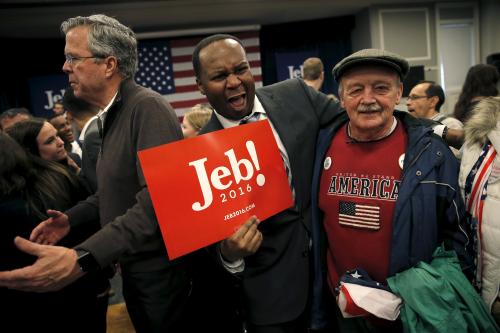
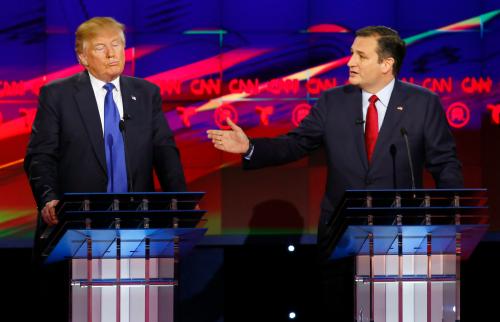
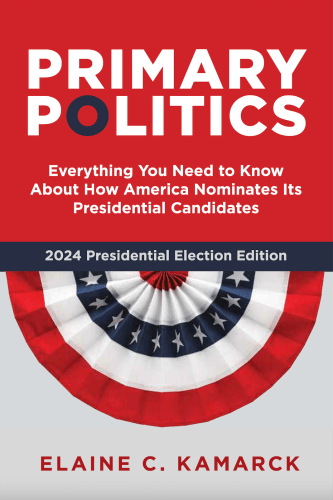
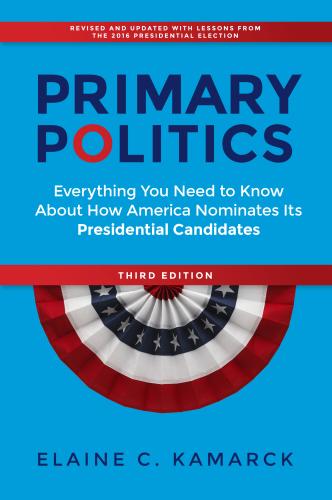
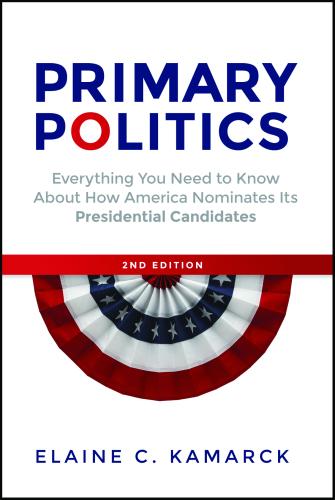

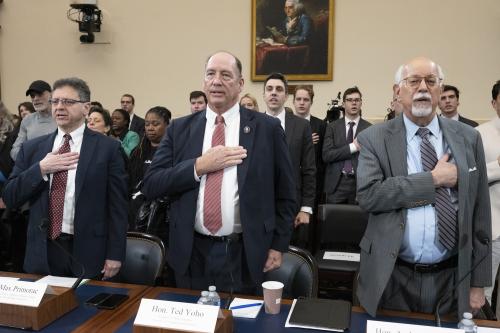
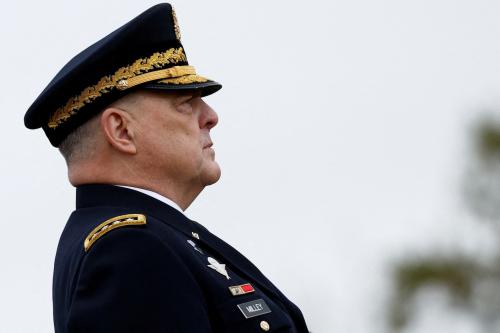

Commentary
First in the nation: The all-important early states of Iowa and New Hampshire
November 27, 2015